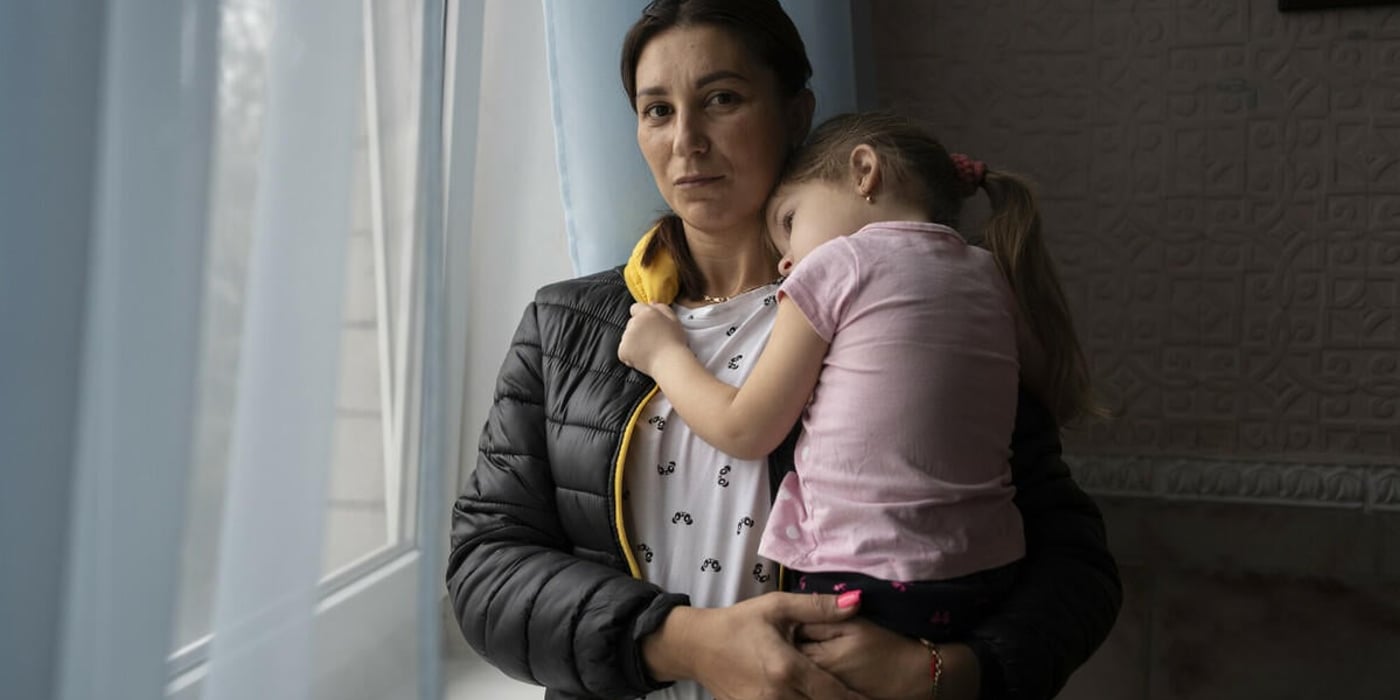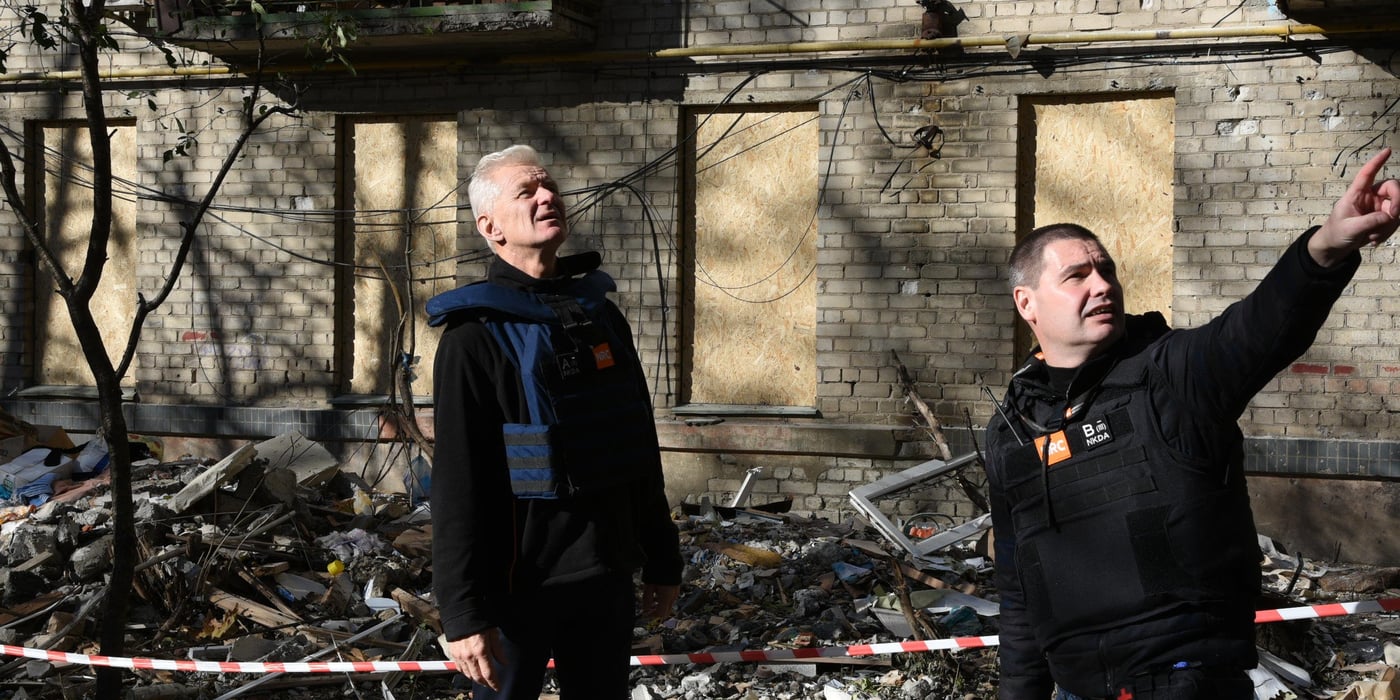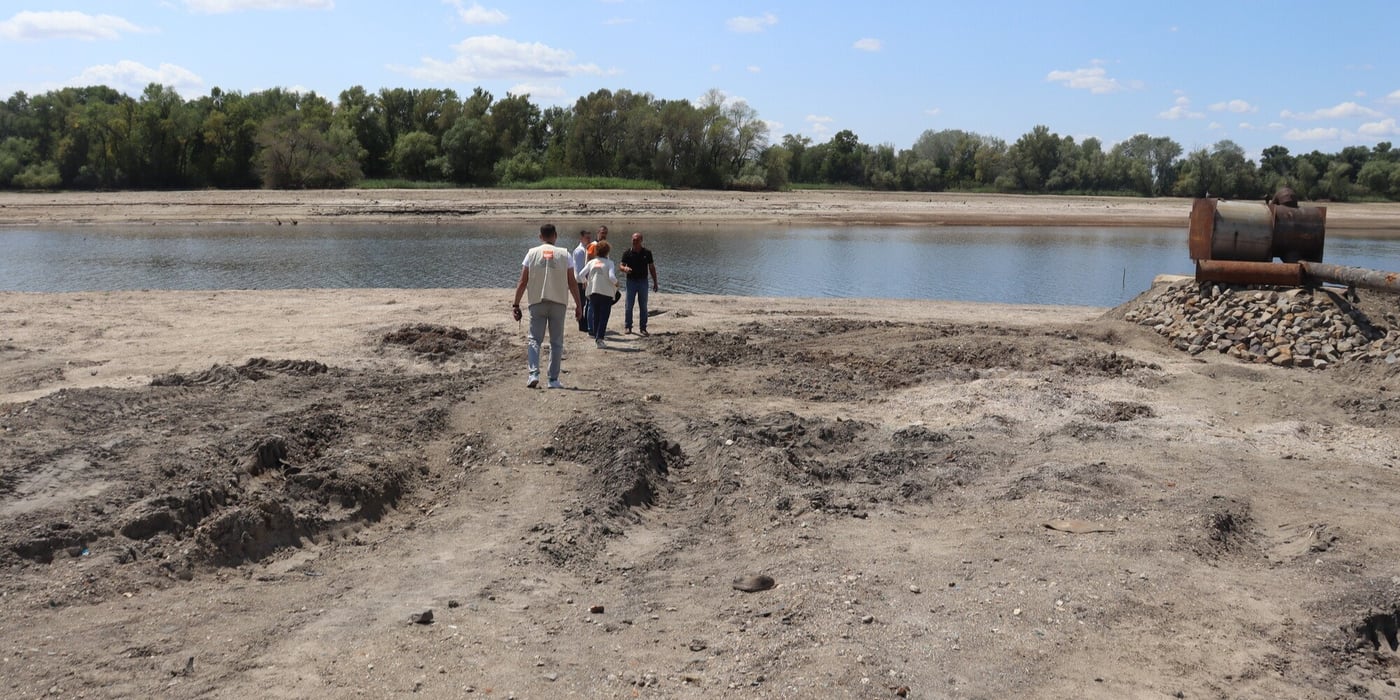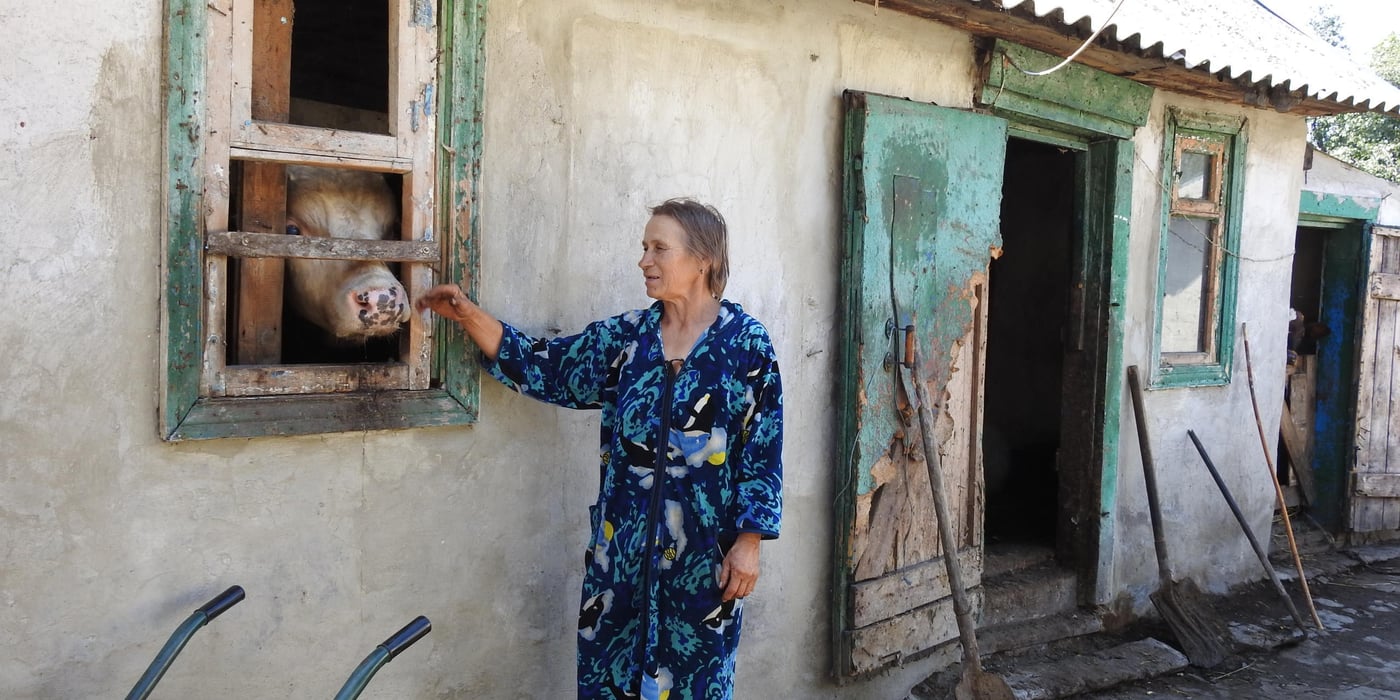
She’s afraid. The 67-year-old woman lives alone in a house in Zolote, a village in eastern Ukraine. She’s only a kilometre away from the front line – the so-called contact line – where fighting is at its most intense.
People living on both sides of the contact line are particularly vulnerable to attacks. Meanwhile, humanitarian needs grow every day.
When the war broke out, Gavriutchenko sought safety from artillery attacks in her basement. She ended up staying there for two weeks.
"I covered the floor with pillows and mattresses to keep warm," she says. “I never imagined that something like this would happen when I grew old.”
A drastic change
Gavriutchenko has a big basement. This is where she stores vegetables throughout the winter and spring. There is some light in the room, but when her village was bombed, the power was cut and she lived in darkness. She lit candles.
At night, she was too afraid to sleep. But during the day she would carefully venture outside to check on her two bulls and two cows.
Everything was better before, she recalls. Before the war, she was able to save up enough money to repair the house when necessary. Back then, she rarely experienced fear.
"I was confident and thought that my future would be bright," she says as she lights a cigarette. Before she retired, Gavriutchenko worked as an installer at the railway in a neighbouring city for 41 years. She has always had her animals and vegetable garden.
During the attack on her village, her roof was damaged. But without money, she was helpless.
One of the Norwegian Refugee Council’s (NRC) largest humanitarian operations is in Luhansk region where Gavriutchenko lives. We provided her with the building materials she needed to repair her house.
Most of the people who depend on help worry that they will lose it if they choose to flee. Gavriutchenko isn’t planning on leaving.
“Nobody is waiting for us anywhere,” she says.
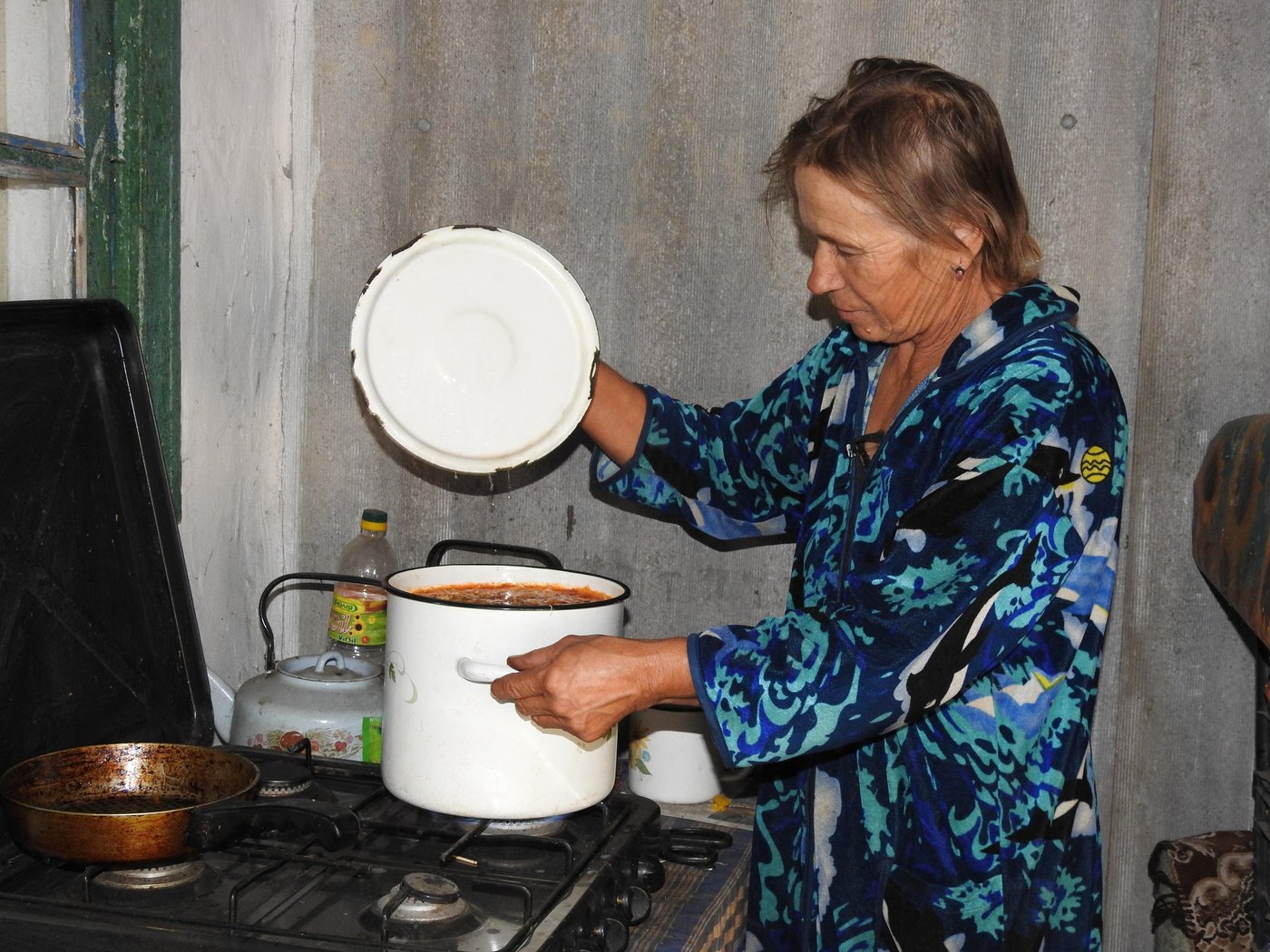
Keeping busy
Gavriutchenko is a resourceful woman who has no time to rest: at four o’clock every morning, she gets up to milk her cows. At six o'clock, she's off to the village market to sell the milk.
“I eat breakfast at ten in the evening,” she says. “I don’t have time to eat during the day. If you don’t work hard, you don’t get anything to eat.”
She depends on her livestock and her vegetable garden. But she also has her pension – around USDD 70 per month.
“It’s still not enough to get by. I have to slaughter the bull calf to survive through the winter.”
Gavriutchenko is sad. She loves her bull calf. He looks at her with loyal eyes.
"But the meat will keep us alive," she sighs.
Scarred for life
Civilians are still targets for snipers. Twice have bullets been dangerously close to hitting her. The stress of constantly living in fear has marked Gavriutchenko.
“When I got married, I weighed 96 kilos. Today, I weigh only 58,” she remarks.
“I have also started smoking for the first time in my life. This war has shredded my nerves,” she adds, lighting a new cigarette.
The contact line separates government-controlled and rebel-controlled areas. Most people living close to the contact line have received emergency aid like food, fuel and medicine.
But lack of funding has put a temporary stop to aid; six months have passed since anyone received help. Gavriutchenko worries about the elderly who only have their pensions.
Still, the lack of food is not what scares her the most.
I'm so tired of the war. I just want peace.Aleksandra Gavriutchenko
Split by war
"My cousin lives in the city, which is now on the other side of the contact line.”
Gavriutchenko has not seen her for several years. Her relatives are also buried on the other side of the contact line.
“I can’t even visit their graves.”
She starts crying.
"I'm so tired of the war. I just want peace.”


